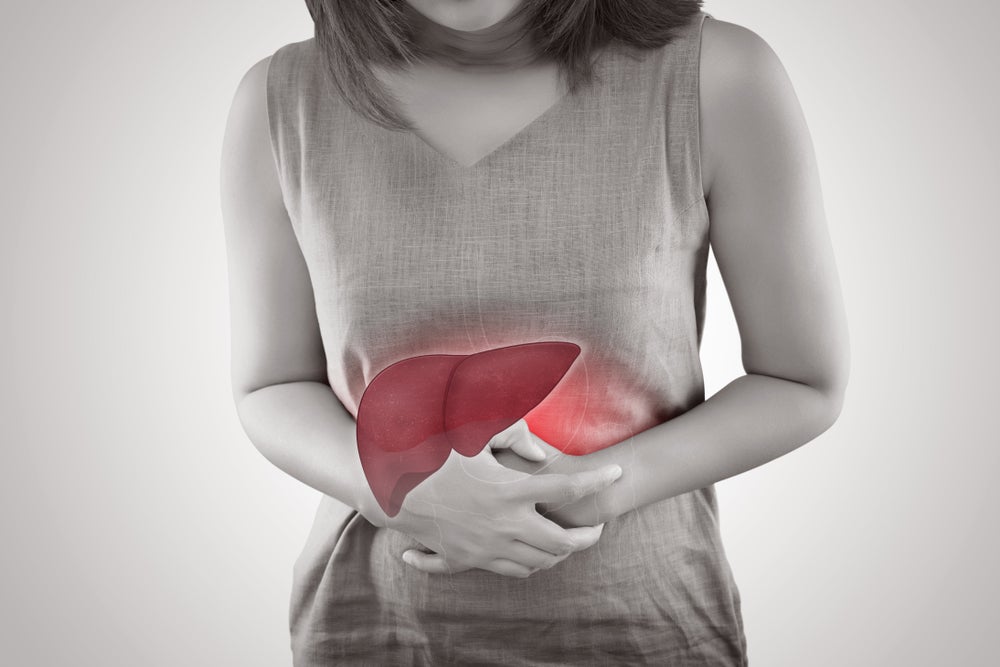The development of therapies for metabolic dysfunction-associated steatohepatitis (MASH) has entered an exciting new phase with several critical Phase III trials now underway. These trials are poised to revolutionise the approach to MASH, a disease strongly linked to obesity, type 2 diabetes (T2D), and other metabolic disorders. As new drugs move through these advanced clinical stages, the potential to reshape MASH treatment is more tangible than ever.
FGF21 analogues are among the most promising developments in this space, and the registration of two key trials over the past year – SYNCHRONY Histology and ENLIGHTEN-Fibrosis – highlights the growing interest in these therapies. Both trials, which focus on efruxifermin and pegozafermin, respectively, have shown the potential to improve fibrosis and resolve steatohepatitis in their corresponding Phase IIb trials and will now aim to achieve this in a larger patient population. By targeting patients with fibrosis stages F2-3, these trials underscore the urgency of addressing liver damage in MASH before it progresses to more severe stages.
Another significant milestone in the MASH treatment landscape is the recent registration of the FASCINATE-3 trial, which introduces denifanstat, a fatty acid synthase (FASN) inhibitor, into the growing list of Phase III candidates. Over six MASH candidates are currently in Phase III trials, which fall within four drug classes, including glucagon-like peptide-1 (GLP-1) receptor targeting therapies, FGF21 analogues, thyroid hormone receptor-β agonists, and now a FASN inhibitor. What makes denifanstat particularly notable is its unique mechanism of action, targeting FASN, which sets it apart from other therapies in the pipeline. By inhibiting FASN, denifanstat directly addresses one of the core disease mechanisms of MASH, the accumulation of fat in the liver, thereby reducing hepatic steatosis, which otherwise would lead to lipotoxicity fuelling chronic inflammation and further disease progression. This targeted approach has demonstrated impressive results in its Phase IIb FASCINATE-2 trial, showing significant histologic improvements and reductions in liver fat. Sagimet, the company behind denifanstat, designed the trial to include patients with fibrosis stages F2-3 who also suffer from metabolic conditions such as T2D, making the trial reflective of real-world MASH patient populations.
At the same time, MASH stakeholders are eagerly awaiting the results of Novo Nordisk’s Phase III ESSENCE trial by the end of this year. The trial is evaluating the blockbuster GLP-1 receptor agonist semaglutide that has already shown significant efficacy in treating obesity and T2D, but its ability to improve liver fibrosis in MASH remains uncertain. The ESSENCE Phase III results are particularly important as GLP-1 dual receptor agonists such as tirzepatide and survodutide have outperformed semaglutide in their Phase IIs and are set to advance into Phase III trials. Boehringer Ingelheim’s recent initiation of Phase III studies for survodutide, along with its US Food and Drug Administration (FDA) breakthrough therapy designation, are crucial advancements for GLP-1 dual receptor agonists in MASH, which are poised to become a cornerstone in the MASH treatment paradigm, given their established efficacy in addressing key MASH comorbidities such as obesity and T2D. The LIVERAGE and LIVERAGE-Cirrhosis studies will investigate the efficacy of survodutide in MASH patients with fibrosis stages 2-3 and those with compensated cirrhosis, respectively. With nearly 3,400 patients involved across both LIVERAGE studies, this could redefine the treatment landscape for MASH and obesity-related conditions, and position survodutide as a versatile and effective treatment option with a focus on a holistic treatment approach to patient management.
In the evolving landscape of clinical trial design, noninvasive tests (NITs) are also gaining traction as a potential alternative to traditional liver biopsies. The efruxifermin SYNCHRONY Real World trial is already using NITs as primary endpoints, signalling a shift that could make future trials more patient-friendly and less invasive. The potential for NITs to replace biopsies is not only a logistical improvement but could also accelerate trial recruitment, as well as completion. This change is being closely watched by stakeholders, including Eli Lilly, which is currently in discussions with the FDA about potentially incorporating NITs into its Phase III tirzepatide trial. If successful, this could set a new precedent for MASH trials, allowing for faster, less invasive assessments of drug efficacy.
The increasing number of late-stage trials for MASH highlights the progress being made in the development of potential novel treatments, driven by the disease’s complex, multifactorial nature. These trials encompass a variety of mechanisms of action, reflecting the need for diverse therapeutic approaches to effectively target the multiple pathways involved in MASH pathogenesis. In this context, their potential to be used in combination offers a promising avenue for addressing the disease’s various underlying causes, ultimately leading to more comprehensive and effective management strategies.

US Tariffs are shifting - will you react or anticipate?
Don’t let policy changes catch you off guard. Stay proactive with real-time data and expert analysis.
By GlobalDataWith an increasing number of Phase III trials now underway and as more data from these trials emerge, the future of MASH treatment will likely be shaped by a combination of innovative therapies, both injectable and oral, that could bring much-needed relief to millions of patients worldwide.






